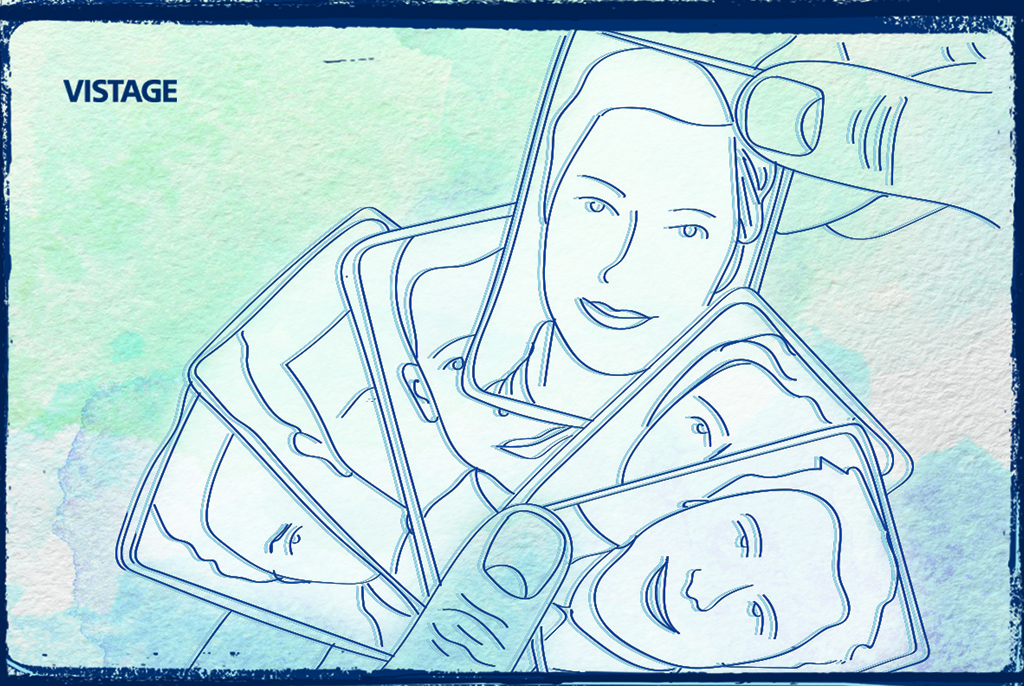How Identity Affects Consumer Decisions

In the fast-paced, information saturated culture we live in, it’s often more difficult than ever to pinpoint what will make your customers buy from you. The same can be said of employees, when trying to create a culture of enthusiastic fans for your business, both within and without. In a recent Fridays With Vistage webinar, Dan Gregory of the Impossible Institute shared six important keys for getting your target audience and your staff to truly buy into your business through the examination of human behavior.
The Age of Unprecedented Change
Dan outlined the following major catalysts of change working in our culture:
- Digital Revolution: Consider how differently we buy books and music compared to a decade ago
- Market Fragmentation: Marketing is moving away from being based on demographics and more toward sociographics, or by our belief systems.
- Information Overload: When people are overloaded with information, it causes them to make no decision – they become paralyzed by the sheer volume and are intimidated to move forward.
- Rising Disengagement: Gallup Polls recent global workforce disengagement study found that 50% of the workforce isn’t engaged in the work they are doing, and 20% admitted to hating their job! But on a positive note, they also found that businesses with highly engaged staff were 22% more productive and 27% more profitable, with customer satisfaction ratings that were 38% higher!
- Expectation Inflation: Customer and staff expectation gets higher and higher every year, meaning we are at an increased capacity to disappoint. A Good Formula for this is: Disappointment = Expectation Divided by Reality!
How do we combat these challenges with our customers and staff? How do we create cultures of the willing, cultures of the enthusiastic? Here are Dan’s six keys:
- The Drive for Identity Congruence: Our sense of who we are and the sense of what we want to project to the world that we are drives all human behavior. Our sense of identity drives our behavior, sales, change, performance, as well as innovation.
- The Drive for Values Alignment: Dan challenges us to frame what’s important to you in terms of what’s important to your customers. Many companies can talk about their values or products but struggle to relate to their own customers. Frame your priorities around the customer! He also invites businesses to Love somebody better than somebody else does, meaning that you provide unique experiences and top-of-the-line service specific to your target market.
- Drive for Social Connection: Connection is equal to currency in our society. Consider that 25% of people ages 21-42 update Facebook status before they even get out of bed! It’s important to connect with your customer and team beyond the status quo. Encouraging connection helps raise our Collaborative Intelligence, or as the Impossible Institute calls it, WeQ. It’s also important to encourage diversity in perspectives, and to avoid contextual blindness in innovation. Consider the example of Sony, who missed out on the opportunity of a lifetime by not creating the IPod, with all the tools in place to do so: They had the precursor to the IPod – The Walkman. They had a music division with a huge stable of successful artists, as well as a computer division! But because each division was separate, there was very little interaction or collaboration. This fragmentation caused contextual blindness to where they missed out on the innovation Apple was able to achieve.
- The Drive for the New and Unique: Dan encouraged members to unlock their team’s creativity, by allowing an idea to evolve and grow, rather than squashing the first iteration of an idea that may not be perfect. Try to focus on the solutions to a problem, rather than getting hung up on the process. Finally,look for ways to turn a regular experience into something your customers can find nowhere else – consider Air New Zealand, who grabs your attention in a seemingly standard safety video by having all onscreen talent completely naked and covered in body paint! It’s a unique twist on an everyday occurrence.
- The Drive for Narrative Meaning: Humans have a need to find out where we fit in the world. We do this through the telling and sharing of stories. This is why the idea of the Corporate Story is really important. In our culture, people tend to treat Google like God, meaning we rarely check facts on the top 5 posts on a Google search. Google is based on frequency, so the more you hear or see it, the more real it is. We also rely on the recommendation stories of friends. Neilson Research says that 91% of people rely on recommendations first before making a decision. Stories are portable and concise, easy to share, and often tend to focus on outliers rather than the middle of the pack.
- We are all Selfish, Scared and Stupid: Humans are still driven by our survival brain, and by our human nature. Don’t try to push against what humans naturally want to do. Instead, try fitting new processes around people’s natural habits. It’s also important to look for design flaws and potential improvements surrounding a problem rather than focusing on discipline or desire. You will encounter failure, so be prepared to factor in stumbling blocks when moving forward. When leveling with human’s survival brain, Dan offers these final thoughts:
- Think Selfish: Change ‘What’s in it for Me?’ To ‘What’s in it for THEM?’
- Think Scared: Flip the Fear, from a fear of action to a fear of inaction.
- Think Stupid: Make Failure Difficult.
Learn more about Dan’s book, Selfish, Scared and Stupid: Stop Fighting Human Nature And Increase Your Performance, Engagement And Influence.
Email info@theimpossibleinstitute.com for a free preview chapter of the book.
Dan is a behavioral researcher and strategist, author, educator and social commentator. He also serves as President and CEO of the Impossible Institute, an innovation and engagement think tank based out of Australia. Dan has helped develop products for Coca Cola and Unilever, invented new formats for Murdoch Magazine, created interactive systems for companies like NewsLimited, Vodaphone and MTV. He’s lectured at the Miami Ad School, Macquarie and Sydney Universities, and provides private coaching and mentoring for CEOs and non-executive board members.
The Fridays with Vistage webinar series provides members with timely and compelling business information they can immediately apply to their businesses. From strategic planning to employee engagement, these hour-long webinars feature the best thought leaders in the business world today.
Learn more about our webinar series here.
Category : Marketing


